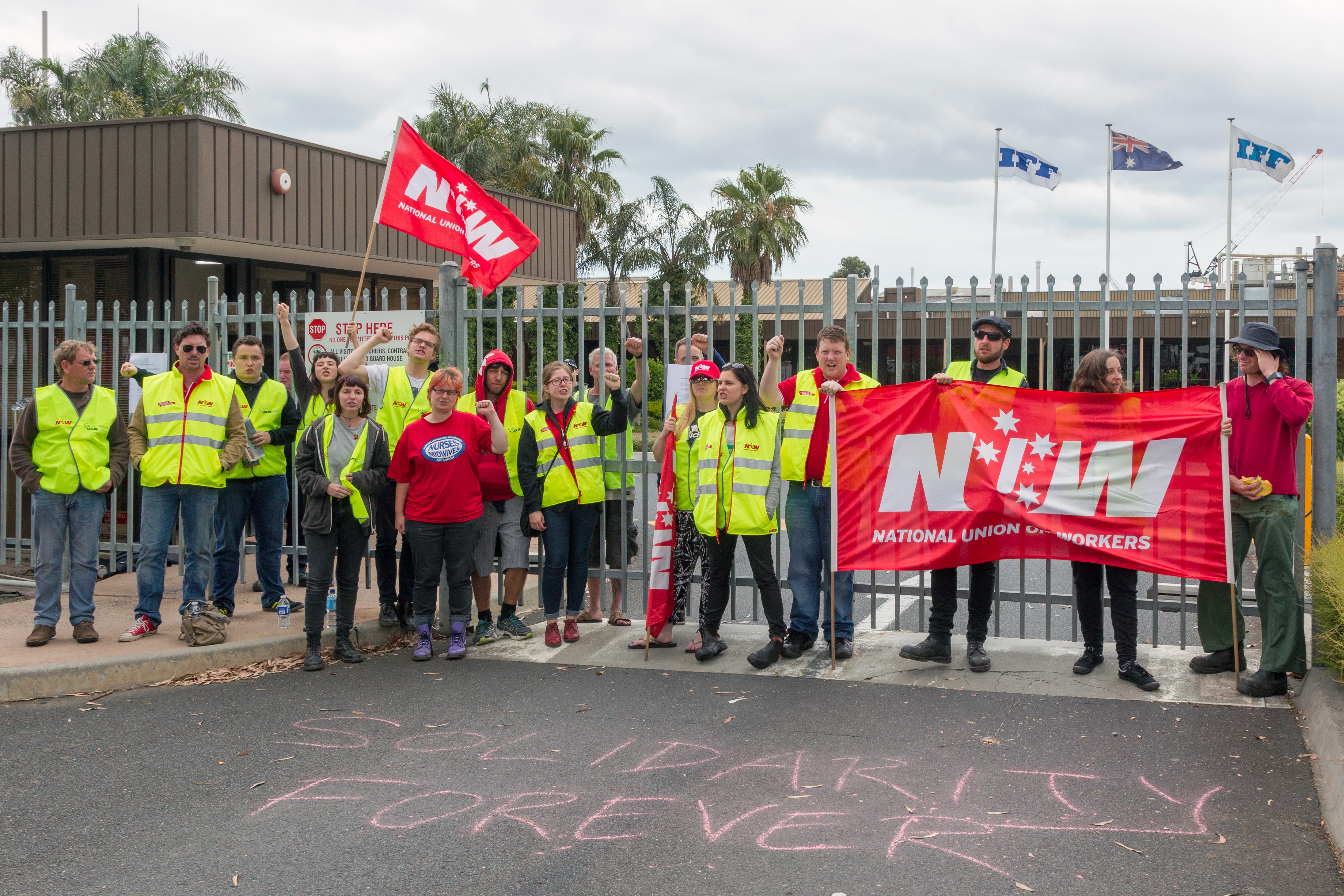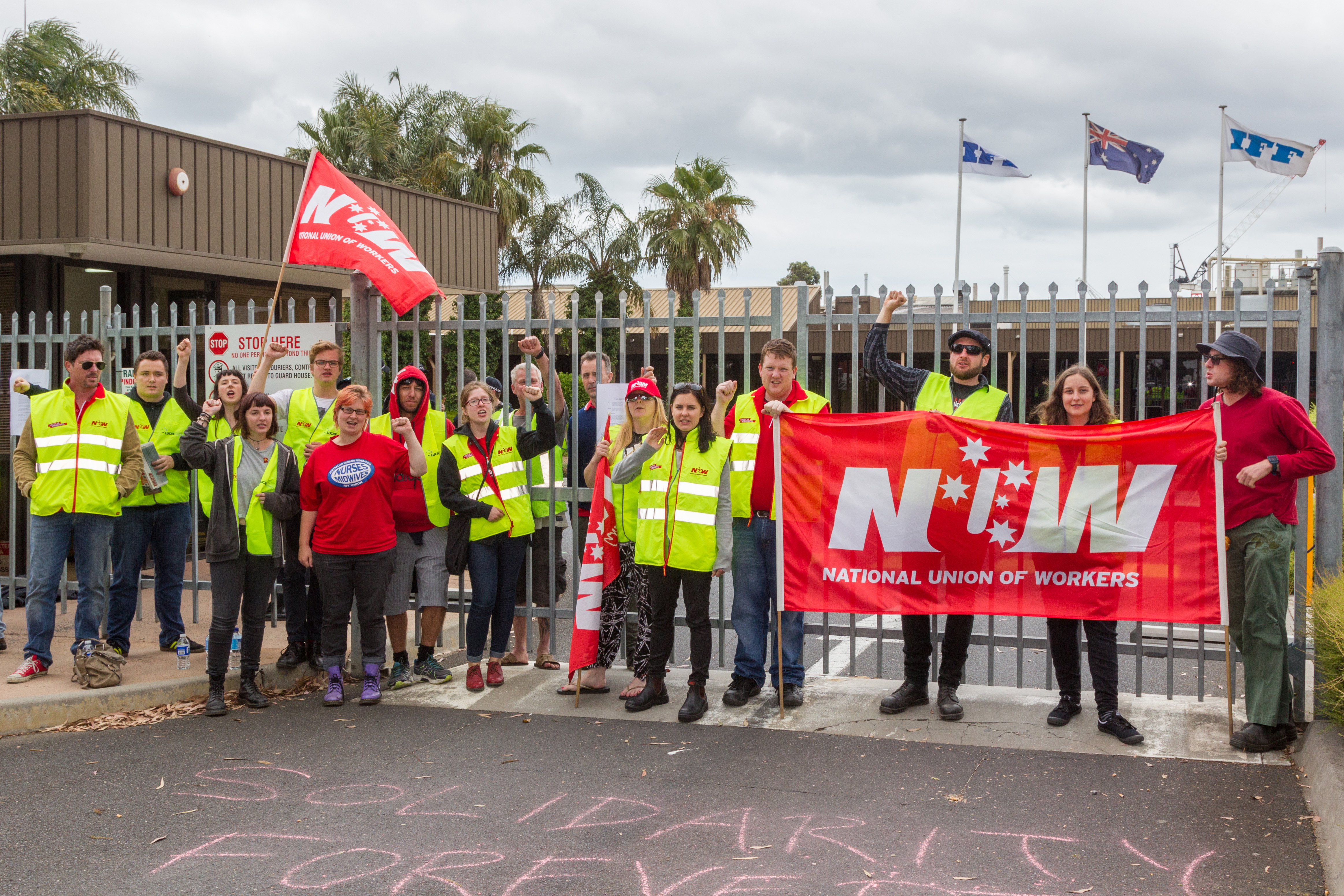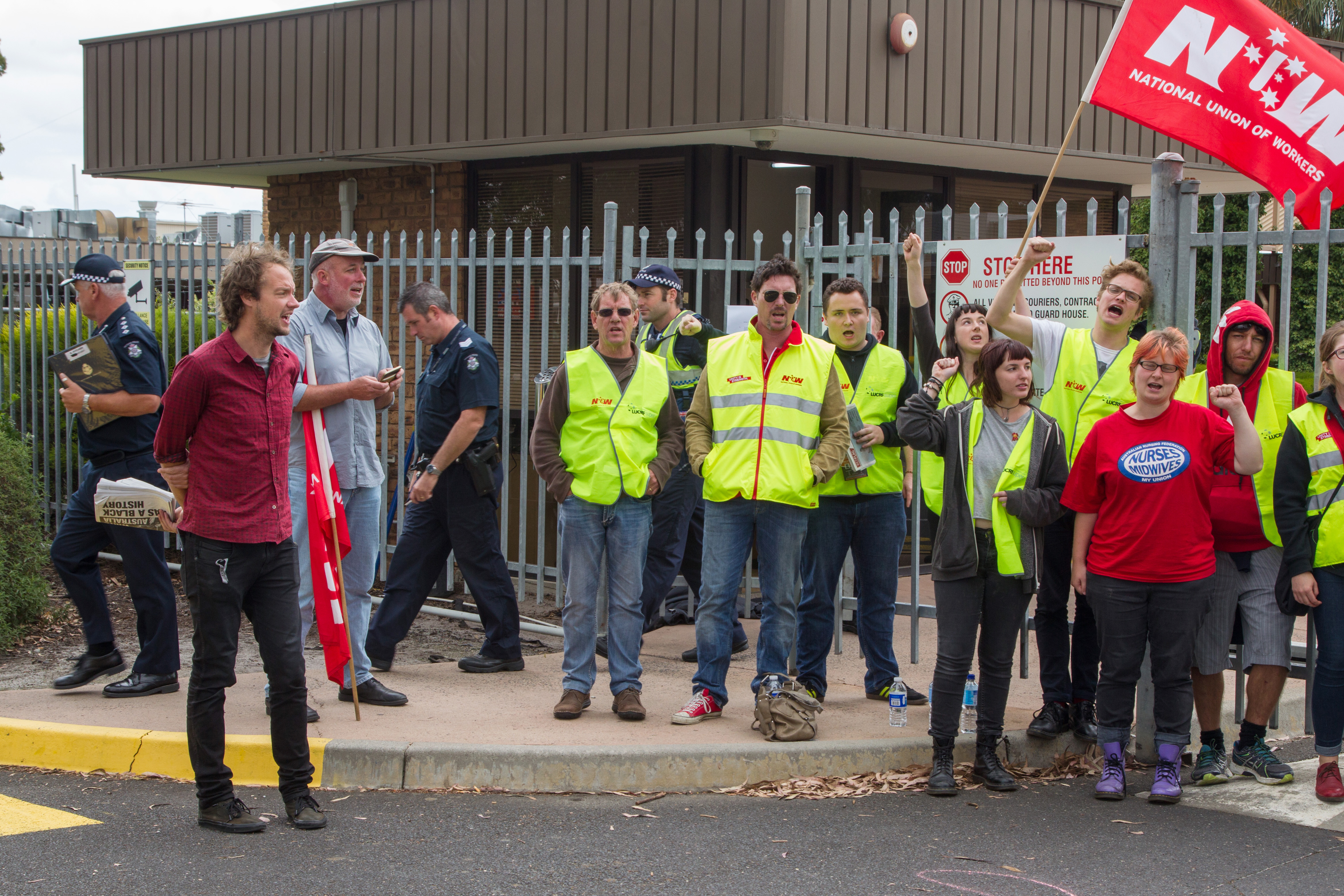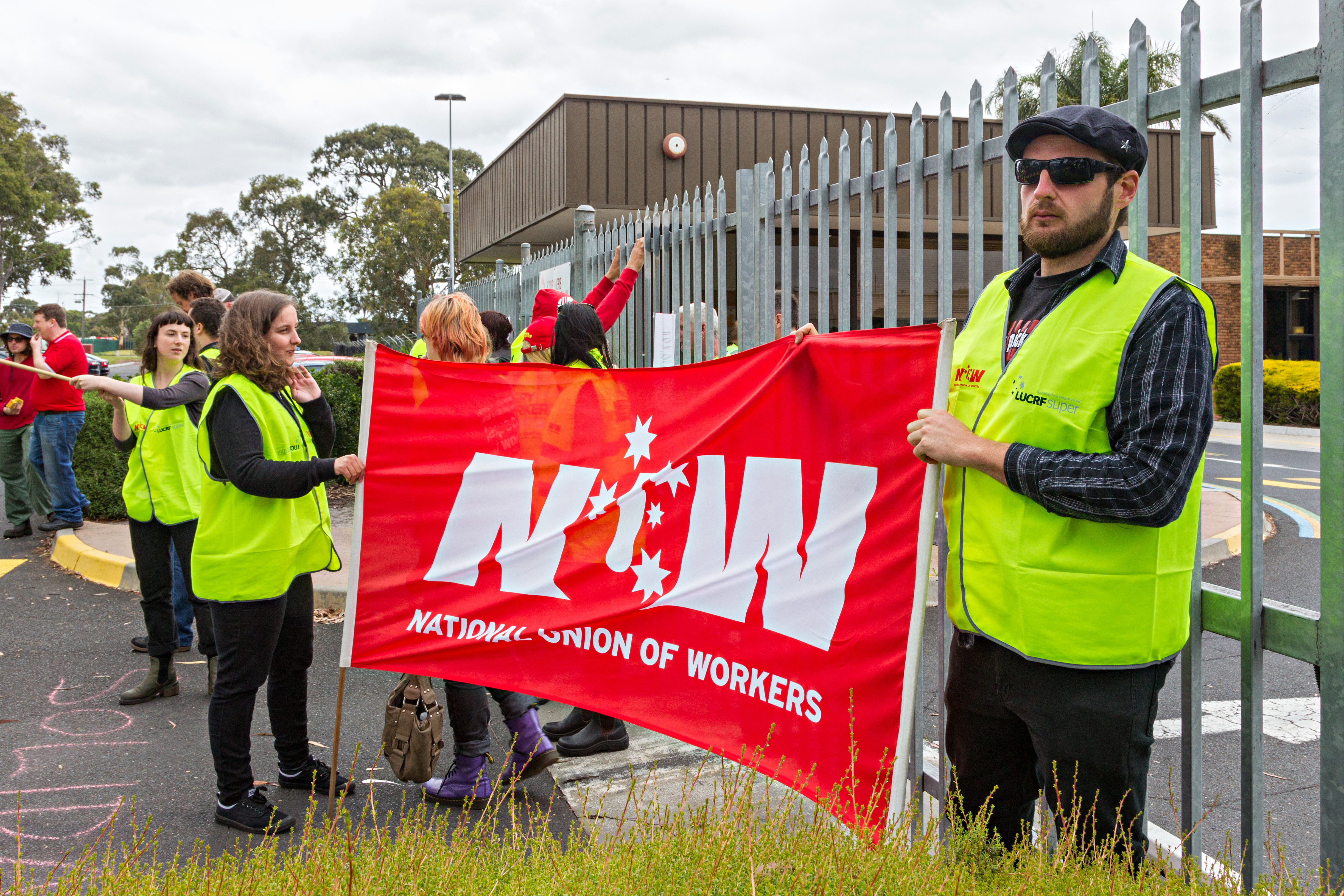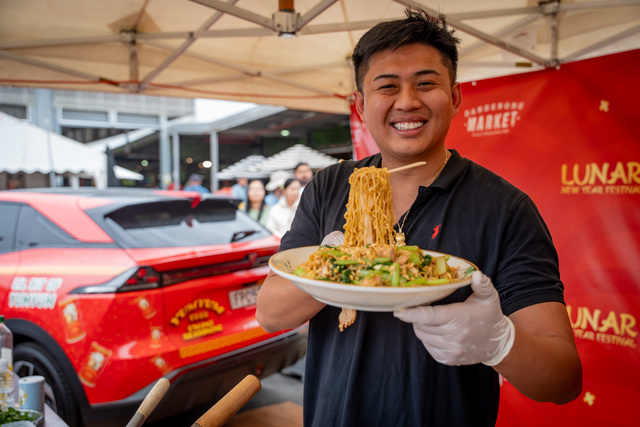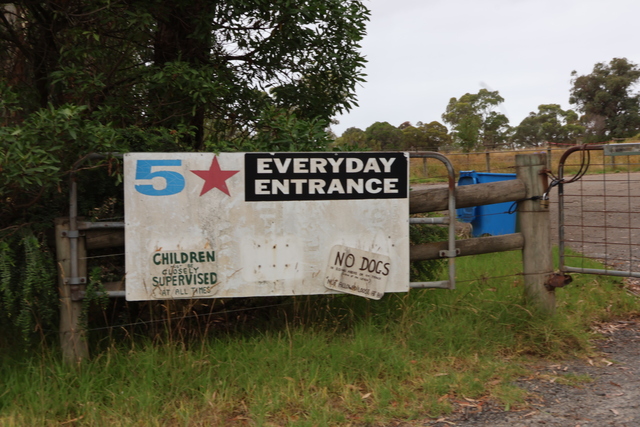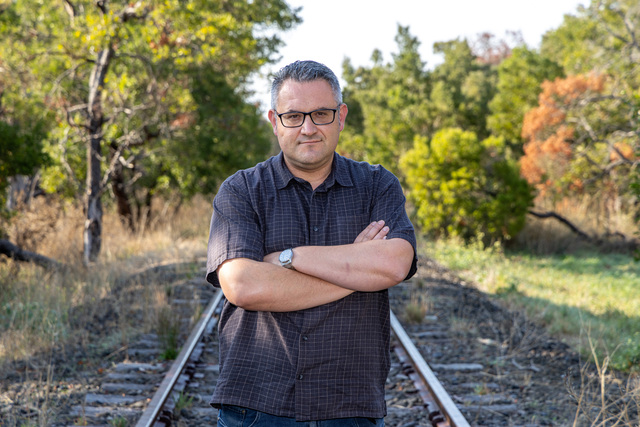UPDATE, 30 January, 4.30pm
WORKERS left a Dandenong factory lunchroom just minutes ago, after a sit-in that lasted more than 80 hours.
IFF employee Arthur Ingles said there were rumours circulating that the riot squad would remove the protestors.
“We weren’t going to be mannequins in a training drill,” he said.
“The picket is going to be maintained. The action is still going to be maintained from outside, not inside.”
National Union of Workers (NUW) communications officer Emma Kerin said workers had had a victory.
“The petition has worked and management from Asia Pacific has come,” she said.
“They are at the site now. They’ll be in Fair Work tomorrow (Saturday).”
Check the website for more updates and next week’s Journal for the full story.
***
UPDATE, 30 January
FATHER Bob Maguire today threw his support behind about 30 workers camped out in a Dandenong factory lunchroom.
Worker Arthur Ingles said a visit from outspoken veteran priest and media personality Father Bob Maguire on Friday had boosted morale.
“Everyone was really, really happy to see him,” he said.
“He was as outraged as anyone else at the way events have unfolded here.”
Mr Ingles said family, friends and union members had brought them food, bedding and clean clothes.
“It’s the unseen support that really keeps you going,” he said.
He told the Journal he was looking forward to a ‘family day out’ barbecue at the site tomorrow (Saturday).
“We want to acknowledge as best we can from where we are that we see that support, we appreciate that support and it shouldn’t go unrecognised,” he said.
NUW communications team member Carina Garland said a meeting scheduled for 5pm yesterday (Thursday) at IFF management’s request never happened.
“We agreed to meet with them and the deputy president of the commission at the Fair Work Commission,” she said.
“Our industrial officer was on the tram when she got a phone call from the deputy president saying the company had refused to show up to the meeting they’d initiated.
“It leaves us in the lunchroom.
“And it leaves the company open to come up with a deal that is fair to our workers.
“If they’re prepared to move on some of the unreasonable things that they’ve refused to move on, we’ll consider that.”
See next week’s Journal for more, and check the website for updates.
***
UPDATE, 29 January
WORKERS remain in a Dandenong South factory lunchroom after starting a lock-in protest more than 50 hours ago.
National Union of Workers (NUW) communications officer Emma Kerin told the Journal that an industrial officer and International Flavours and Fragrances (IFF) representatives were currently before the Fair Work Commission.
“We won’t know much until midday at this stage,” she said.
“I’m having a meeting with workers at the moment to make plans.”
Check back for updates.
***
UPDATE, 28 January
ABOUT 60 workers have now been in the lunchroom at IFF Dandenong for more than 24 hours.
National Union of Workers (NUW) communications officer Emma Kerin told the Journal they’d had “a good night’s sleep”.
“We’re hoping that we hear something more today but it sounds like we’ve probably got another hearing tomorrow in the Fair Work Commission,” she said.
“They (IFF) were in the commission until our industrial officer until 9.30pm last night. Unfortunately we didn’t get anywhere.”
The Journal will bring you more as it comes to hand.
***
By CASEY NEILL
ABOUT 60 workers have locked themselves in a lunch room at a Dandenong South factory and will stay put “as long as it takes”.
The International Flavours and Fragrances (IFF) employees arrived at the Frankston-Dandenong Road premises about 6am this morning (Tuesday) to find they were banned from going inside.
The American-owned multinational company supplies flavours to Australia’s biggest food producers.
National Union of Workers (NUW) spokeswoman Emma Kerin told the Journal from inside the canteen that workers were to start protected industrial action today.
She said enterprise bargaining agreement (EBA) negotiations started last June and had stalled because IFF was not backing down on cutting conditions.
“Protected industrial action was going to be a ban on paperwork,” Ms Kerin said.
“That led to quite an extreme response which was a lockout.
“Workers are currently in the lunch room and wanting to take up negotiations again if they are genuine, and not just the employer saying ‘it’s our way or the highway’.”
Worker Arthur Ingles said the last communication workers had with the company was an instruction to turn up for work on Tuesday to be addressed.
“We found a notice on the perimeter fence advising we were locked out because of our decision to take protected industrial action,” he said.
“That set the tone for the day.
“These negotiations have been going on for the best part of five months.
“Even by the company’s own admission we’re just running around in circles.
“What we’re wanting out of all of this is a fair and reasonable interpretation of the EBA so we can get back to work.”
Mr Ingles said workers wanted to hold on to two 10-minute paid breaks each day, a $50 a day bonus for sick leave not taken and more.
He said the industrial action was also to include a ban on overtime and would have continued indefinitely.
“It would have had a pretty severe impact on the company,” he said.
“We produce products that are used in food production.
“Accountability is a huge part of their responsibility. It would have prevented production.
“We’ve got no doubt that the company has made provision by a lot of stock being made in advance and taken off-site.”
Mr Ingles said security was on site, supervising.
“The company hasn’t spoken to us all day,” he said.
How long will they stay put?
“The resolution carried last week was ‘whatever it takes’,” he said.
“What we believe is that this can be resolved by the interested parties. That is the company and that is their employees.
“We need to resolve these differences.”
The Journal tried to contact IFF but could not get through.
A spokeswoman told another media outlet that the protected industrial action put food safety at risk, so the lockout was to protect food safety.


